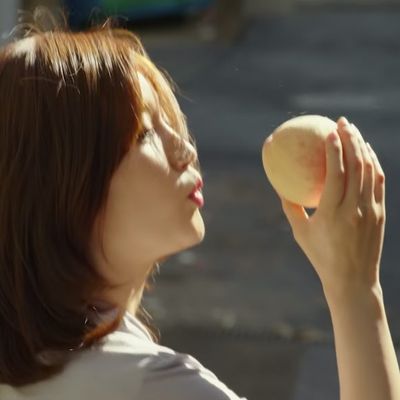
Warning: some mild spoilers ahead.
Parasite’s description seems simple enough: A poor family schemes their way into a wealthy family’s employ — the summer of scam returns! When we meet the poor family (the Kims), they’re living in a below-street-level apartment where they crawl onto elevated toilets to mooch Wi-Fi from their neighbors. Meanwhile, the wealthy family (the Parks) are living in a modernist mansion that’s the finest real estate I’ve seen this side of Big Little Lies. One by one, the Kims, pretending not to know each other, manage to get hired into service at the Park mansion: as tutors for their children, as a housekeeper, as a driver. It seems obvious that the Kims are leeching off the Parks. (“If you put our salaries together,” Ki-taek observes one night, “the amount of money coming from that family into ours is immense.”) But Parasite’s worldview isn’t so simple as to cast one family evil and the other heroic. Director Bong Joon-ho described it as “a comedy without clowns and a tragedy without villains.” Together, the families form a twisted, brilliant octet, and that’s before we get to what’s going on behind certain closed doors.
But we are gathered here today not to talk about those doors, but to talk about peaches. Because I promise that after Parasite, which screened this week as part of the Toronto International Film Festival, you will not look at them the same way again.
It all starts with the Kim kids — who go by Kevin and Jessica in the Park household and get hired first — as the aforementioned tutors to a daughter and son, respectively. To get their dad on payroll, they plant a pair of panties in the backseat of Mr. Park’s car, framing the family driver and ensuring their father is pulled in as his replacement. Then they set their sights on Park’s longtime housekeeper, Moon-kwang. She’s older, not exactly warm, and a little suspicious of the new staff and how quickly they’ve infiltrated her home. Soon enough, the Kims discover something about her they can exploit: her very serious peach allergy. It’s not a tickle-in-your-throat allergy or something that can be staved off with a few pills — her peach allergy is just as sickly hilarious as Will Smith’s in Hitch. All it takes is a few little scrapes of peach fuzz for Moon-kwang to have to abandon the luxurious house (not so voluntarily) and its blue-blood residents.
And so, upon watching Parasite, here is something I have become convinced of: It’s not the Jennifers (Lawrence or Lopez) or the Chrises (Pine, Evans, Hemsworth, Meloni, or Messina) or the Hollywood Alans (Arkin or Alda, yes I am trying to make this a thing) — peaches have the best agent in Hollywood. They show up in everything, doing everything. I am so happy to report that peaches have continued to be employed as the chaos agent of contemporary cinema, or at least the last two-ish years of my movie-going life. They were penetrated (and, importantly, uneaten) in Call Me by Your Name; they’re poisonous in Parasite; they even have a bit part on Succession, as the last name of the season’s best new character, Cyd Peach!
Sure, pre-Parasite, peaches got a star-making role in Call Me by Your Name. Frustrated-in-love teen Elio Perlman plucks a peach as a summer afternoon snack, but begins stroking it affectionately, and one thing leads to another and — hmm, how to put this delicately? — fucks it. Enter his slightly older lover Oliver who, surprised and amused by Elio’s action, dips a finger into the peach and tastes its remains. I’m imagining the Call Me By Your Name scene as a real ingenue moment for peaches: Grapes and oranges always get to shine, but peaches were overlooked. Peaches were working day shifts at a café and auditioning on afternoons off, like Emma Stone in La La Land. But then, in Call Me by Your Name, they’re discovered! Huzzah, a new “It” fruit arrives in Hollywood — suddenly they’re booked and busy and also ignoring hundreds of emails just to check the Google Alert for their name, which previously only buzzed when James and the Giant Peach was added or removed from a streaming service.
Parasite, though, is the the star-making moment for this fruit. After Call Me by Your Name they were just on a Young Hollywood list, between an ex-Disney star and a YouTuber; now they’re being approached at LAX arrivals by a TMZ reporter waiting for Bieber. The power peaches have: Apples are poisonous in every movie. That’s not range! Bananas are always the butt of some sophomoric phallic gag. That’s not depth! Avocados — which I will admit I did not realize qualified as fruit until this very moment — are the premier lazy person’s signifier for millennial status. Cherries and lemons were each immortalized by separate Beyoncé projects, so they’re doing just fine.
Strawberries, watermelon, grapefruit, and blackberries: You should all be calling peaches’ agent. Cantaloupes can choke though, because I’m pretty sure I’m allergic.


